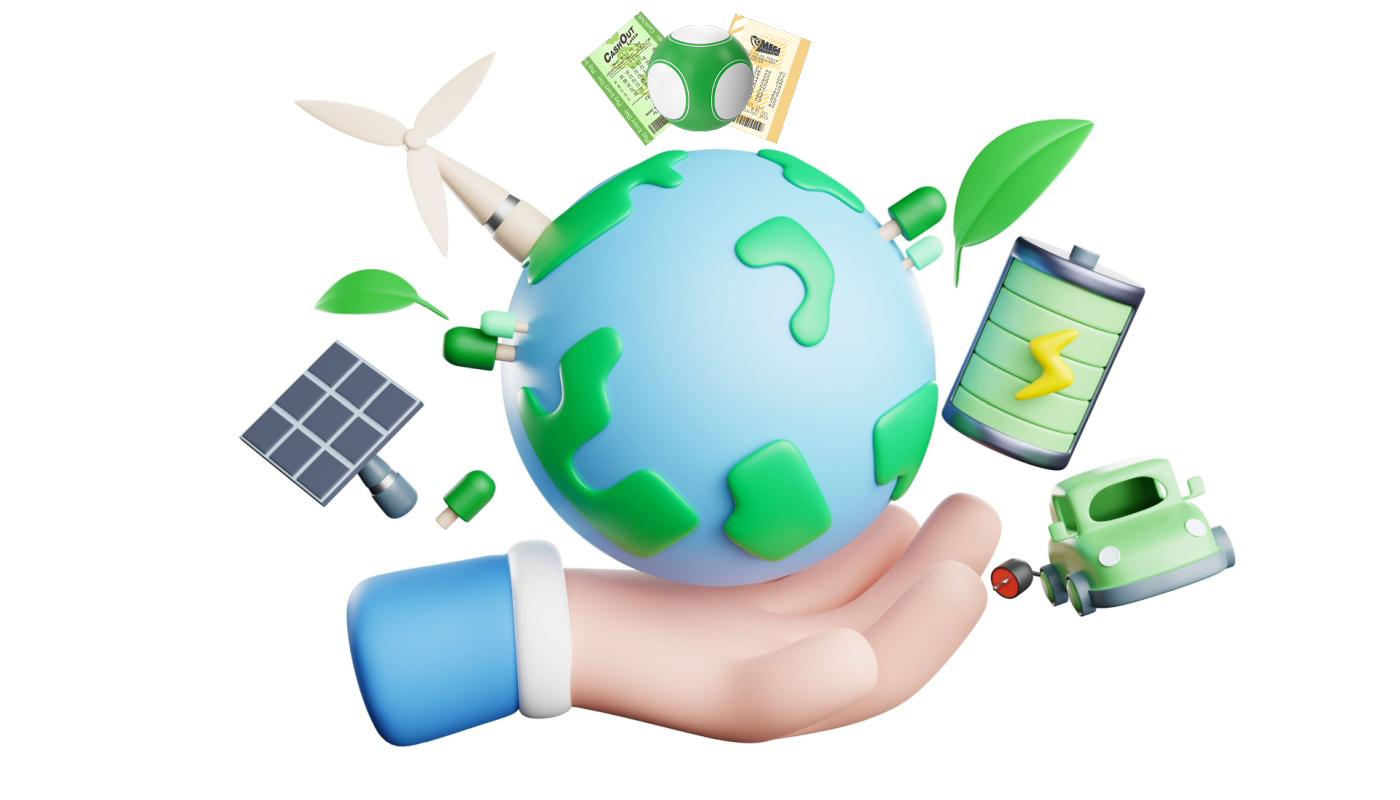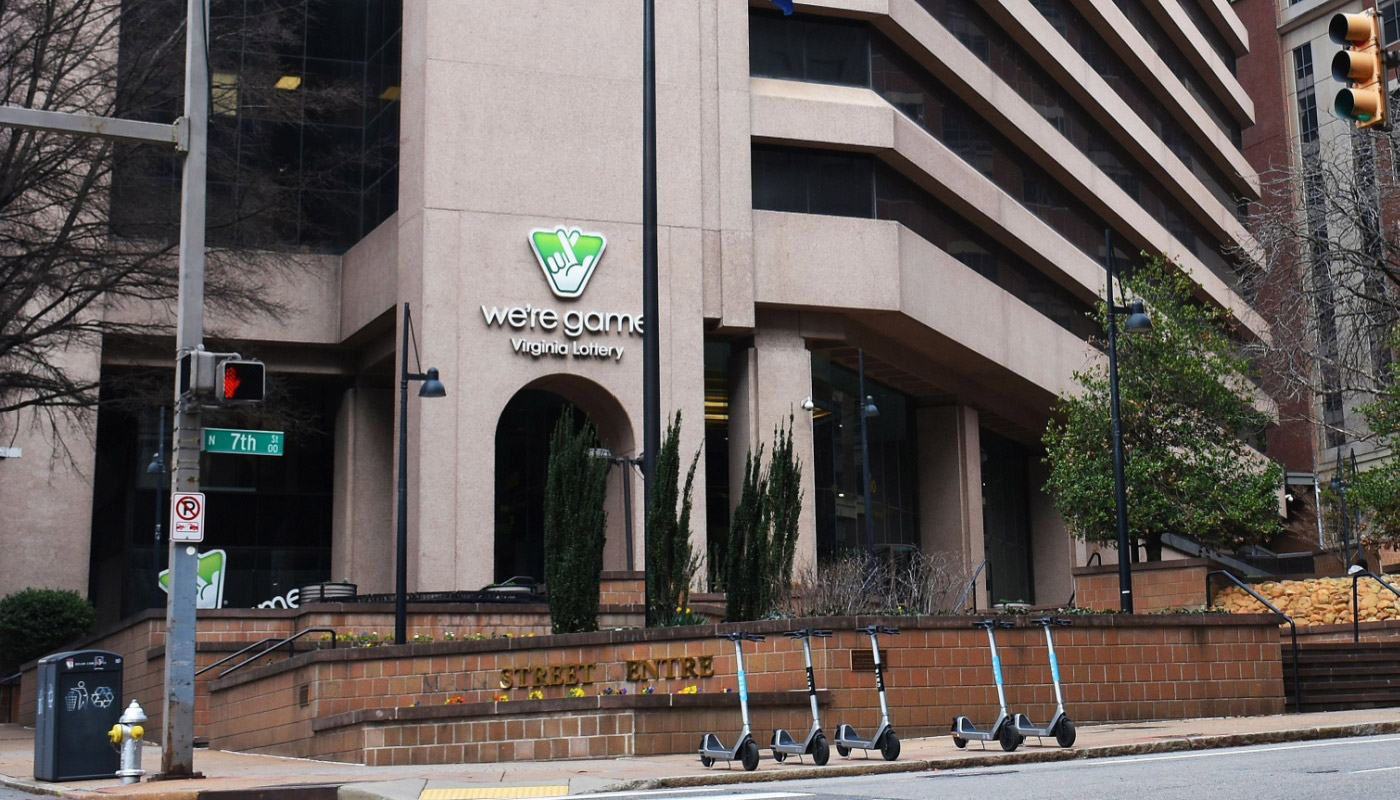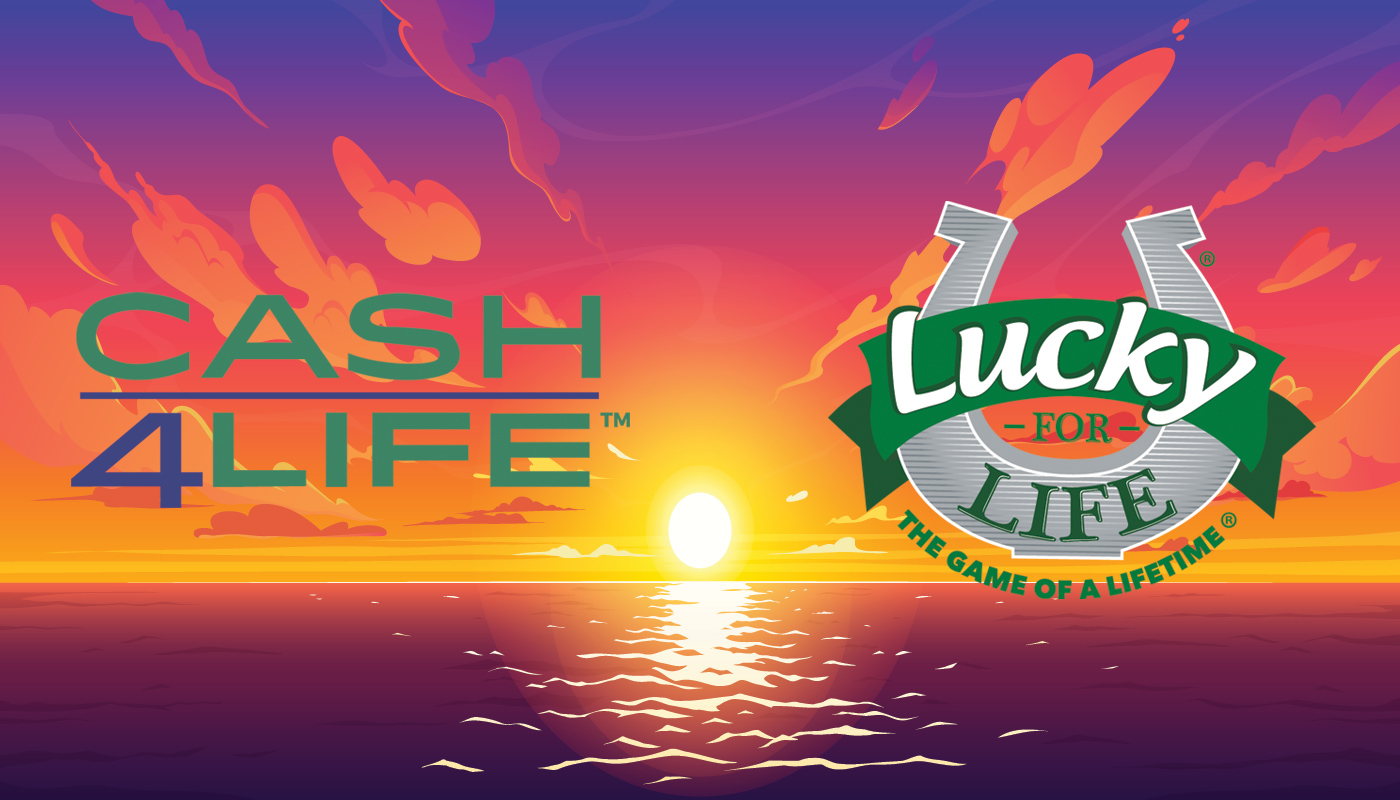
News writer, Interviewer
Lotteries have captivated people for centuries, offering a chance to turn a small investment into a life-changing win. From the excitement of picking your lucky numbers to the thrill of checking the winning combinations, lotteries offer a unique blend of anticipation and potential reward.
However, beyond the potential riches, there's another aspect to consider: the impact lotteries have on the environment.
Let's break down the environmental footprint of lotteries, exploring both the ways they can create waste and the initiatives some lotteries are taking to become more sustainable.
Not so green
Traditional lottery tickets come with a hidden environmental cost. Their production relies on a surprising amount of paper. This paper demand can lead to deforestation, as trees are cut down to meet ticket production needs.
The process of creating the paper itself can be a major polluter. It can contribute to water pollution through chemicals used in pulping and bleaching. Additionally, the energy used to power paper mills can generate significant greenhouse gas emissions.
The problem doesn't end there. Many lottery tickets go unplayed, and even winning tickets often get discarded after claiming the prize. Unfortunately, these tickets end up piling up in landfills, adding to the ever-growing waste problem. Landfills take up valuable space and can leak harmful chemicals into the surrounding environment.
Going green
Thankfully, the environmental impact of lotteries isn't a lost cause. A growing number of lotteries are recognizing their environmental footprint and taking steps to minimize it. Here's a closer look at some of these green initiatives:
- Shifting to digital: The rise of online lotteries is a major win for the environment. By allowing players to purchase and manage tickets electronically, online platforms significantly reduce the need for paper tickets. This translates to fewer trees being cut down, less water pollution from paper production, and a decrease in greenhouse gas emissions associated with paper manufacturing.
- Recycled paper: Some lotteries are taking a more eco-friendly approach to traditional tickets by using recycled paper. This reduces the demand for virgin wood pulp, which helps conserve forests. By opting for recycled paper, these lotteries are giving used paper a second life and minimizing their environmental footprint.
- Sustainable practices: A few forward-thinking lotteries are exploring even more comprehensive ways to lessen their environmental impact. This might include initiatives like using renewable energy sources to power their operations. By switching to solar, wind, or geothermal power, these lotteries can significantly reduce their reliance on fossil fuels and their associated greenhouse gas emissions.
Making a difference
Let's look into the specific actions lotteries are taking to become more sustainable:
- Promoting electronic tickets: Many lotteries are actively encouraging players to switch from paper tickets to digital options. This can be achieved through various methods, such as offering bonuses or discounts for using the lottery app, launching educational campaigns about the environmental benefits of digital play, or making the online platform user-friendly and convenient.
- Recycling programs: Some lotteries recognize the value of used paper tickets and are implementing recycling programs. This allows players to responsibly dispose of their tickets after the drawing, preventing them from ending up in landfills. These programs might involve setting up designated recycling bins at retailers where tickets are sold or offering mail-in options for used tickets.
- Partnerships: Lotteries are increasingly looking to collaborate with external organizations to enhance their sustainability efforts. This could involve partnering with recycling companies to ensure proper processing of used tickets or working with environmental organizations to develop and implement new green initiatives.
- Energy efficiency: Looking beyond paper, some lotteries are taking a holistic approach to sustainability by exploring ways to improve their overall energy efficiency. This might involve initiatives like upgrading to energy-efficient lighting and appliances in their facilities or even exploring the use of renewable energy sources like solar panels to power their operations.
While some lotteries are making strides, these initiatives aren't adopted by all. However, there's a growing awareness of the environmental impact, and change is happening.
Real-world examples
Let's see how some lotteries are putting their sustainability plans into action:
The Massachusetts State Lottery app
This app is a prime example of how lotteries can leverage technology for environmental good. By allowing players to claim prizes electronically, the app has significantly reduced paper usage associated with traditional in-person claims. Since its launch in September 2021, the app has eliminated an estimated 208,000 gallons of gas emissions and over 4 million pounds of carbon emissions. Additionally, lottery winners have claimed over $139 million in prizes through the app, saving them an estimated $759,000 in gasoline costs.
The Connecticut Lottery's multi-faceted approach
The Connecticut Lottery showcases a commitment to sustainability through a variety of initiatives. They prioritize recycled materials for packaging, printing, and even office supplies. Their efforts extend beyond paper, with the use of energy-efficient lighting saving an estimated 49,884 kilowatt-hours annually. Additionally, their rain garden helps manage water runoff, a major source of water pollution.
The Indiana Lottery's collaborative efforts
The Indiana Lottery highlights the power of partnerships in its sustainability strategy. By working with a vendor that uses 100% green energy, sustainable forests, and a percentage of post-consumer recycled paper in each order for point-of-sale materials, the lottery is extending its eco-friendly reach beyond its own operations. Additionally, their promotion of digital playslips has helped players save over two metric tons of paper.
The Arizona Lottery and Habitat for Humanity partnership
This unique collaboration goes beyond traditional lottery initiatives. The Arizona Lottery's sponsorship of the Timber Sky Starter Home project in Flagstaff tackles the issue of affordable housing while also promoting sustainability. These 500-square-foot homes are designed with energy efficiency in mind, featuring solar panels and all-electric systems projected to achieve net-zero energy consumption.
The future is green
While lotteries have traditionally had an environmental footprint, the tide is turning. A growing number of lotteries are embracing sustainable practices, from offering digital options to prioritizing recycled materials.


















Comments